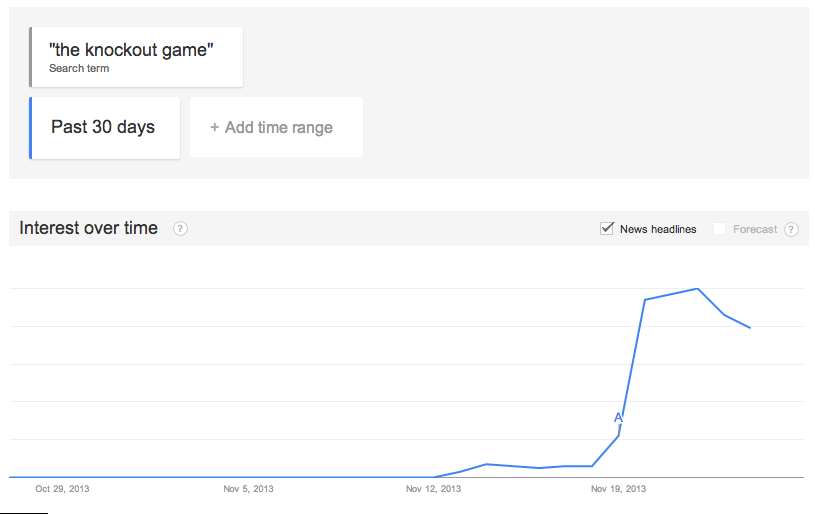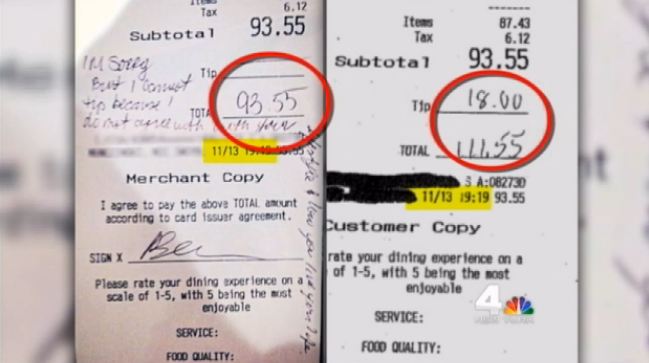Friendly reminder: Don't believe everything you read on the internet
Two emotion-baiting stories making the rounds this past week turned out to be hoaxes

A free daily email with the biggest news stories of the day – and the best features from TheWeek.com
You are now subscribed
Your newsletter sign-up was successful
Emotions are the currency of the internet sharing economy, but they have their dangers. While warm fuzzies and moral outrage can dutifully inspire you to hit the Facebook Share button, here is a friendly and gentle reminder to question anything you read or watch, especially if it seems too good to be true. (This article included.)
Two stories that spread like wildfire throughout Facebook over the past week were convincingly debunked this morning. The first concerns a piece of questionable reporting that I first saw shared by a local CBS affiliate. Tellingly, the original story has been taken down.
For those fortunate enough to have missed it, it wove a scary tale: Groups of black teenagers were reported to be wandering the streets, randomly sucker-punching mostly white men and women in a violent competition termed the "knockout game." Searches for the term spiked on Google.
The Week
Escape your echo chamber. Get the facts behind the news, plus analysis from multiple perspectives.

Sign up for The Week's Free Newsletters
From our morning news briefing to a weekly Good News Newsletter, get the best of The Week delivered directly to your inbox.
From our morning news briefing to a weekly Good News Newsletter, get the best of The Week delivered directly to your inbox.

The only problem? The knockout game is likely a myth predicated on three isolated instances reported across the country, the first of which dates back to October 2012. Some outlets compounded the problem by showing video of one of the horrifying instances, then suggested the game might be spreading. Indeed, the easily digestible narrative provides a convenient and click-bait-y story (even if the dangers were overblown), that preys largely on, as Robin Abcarian suggests, "the ongoing demonization of black teenagers." (Emphasis added.)
There is no consensus among law enforcement that the "knockout game" is even a thing. "If ever there was an urban myth, this was it," a Jersey City police spokesman told the New York Times last week. But that has not stopped a Republican New York assemblyman from proposing a "Knockout Assault Deterrent Act," requiring teens to be tried as adults with prison terms of up to 25 years. That, friends, is how you institutionalize racism. [Los Angeles Times]
The next story concerns a piece of paper. Dayna Morales, a waitress at the Asian Gallop Bistro in New Jersey, posted a photo of a receipt to Facebook from a pair of seemingly bigoted patrons. Morales, who is gay, claims that a $0 tip was left on a $93 bill with a nasty message: "I'm sorry. But I cannot tip because I do not agree with your lifestyle." At the time of writing this, the Facebook photo is closing in on 10,000 Likes and 4,200 Shares.
One problem: The couple showed their copy of the receipt to NBC New York, which had an $18 tip.
A free daily email with the biggest news stories of the day – and the best features from TheWeek.com

(Screengrab via NBC New York)
Then they revealed their Visa bill, which showed a total charge of $111.55 for the meal, among other evidence. The restaurant, which had publicly supported Morales previously, declined to comment on the revelation.
"We've never not left a tip when someone gave good service, and we would never leave a note like that," said the wife.
The husband said he and his wife have both worked in restaurants and believe in the value of tipping, and noted that he didn't vote for Gov. Chris Christie because the governor doesn't support gay marriage. "Never would a message like that come from us," he said. [NBC New York]
It's unclear if Morales was involved in the hoax herself, or if someone else inside the restaurant merely got a hold of the receipt first before her. Nevertheless, the troubling pervasiveness of these stories should be seen as instructive, as they show us the importance of asking questions. On Facebook as in life, it never hurts to use caution.
-
 The ‘ravenous’ demand for Cornish minerals
The ‘ravenous’ demand for Cornish mineralsUnder the Radar Growing need for critical minerals to power tech has intensified ‘appetite’ for lithium, which could be a ‘huge boon’ for local economy
-
 Why are election experts taking Trump’s midterm threats seriously?
Why are election experts taking Trump’s midterm threats seriously?IN THE SPOTLIGHT As the president muses about polling place deployments and a centralized electoral system aimed at one-party control, lawmakers are taking this administration at its word
-
 ‘Restaurateurs have become millionaires’
‘Restaurateurs have become millionaires’Instant Opinion Opinion, comment and editorials of the day